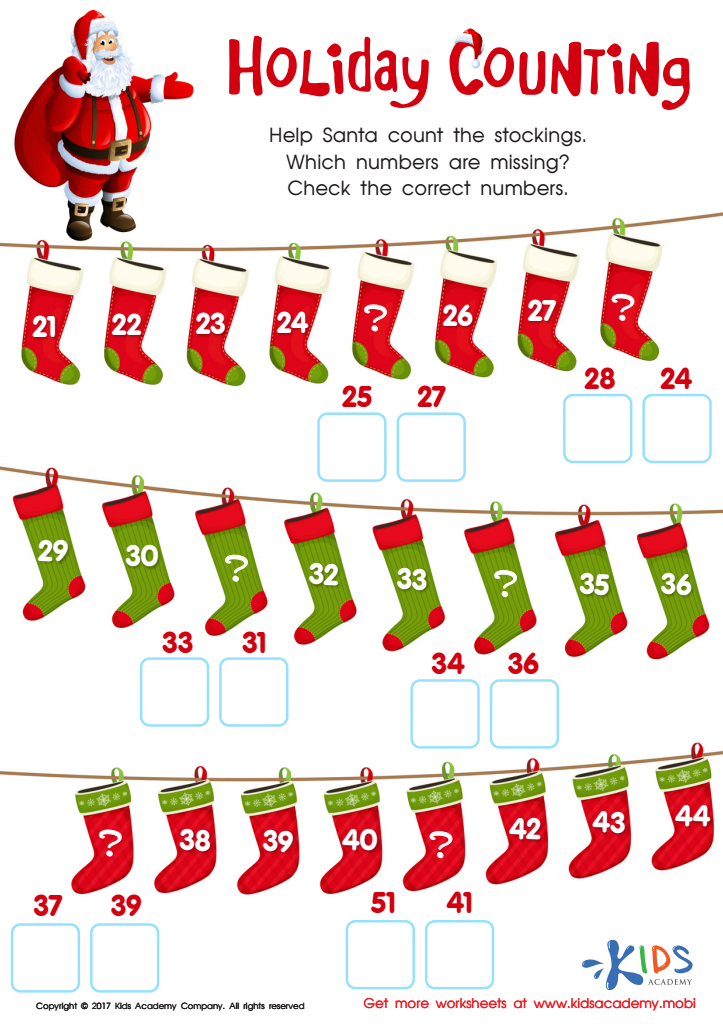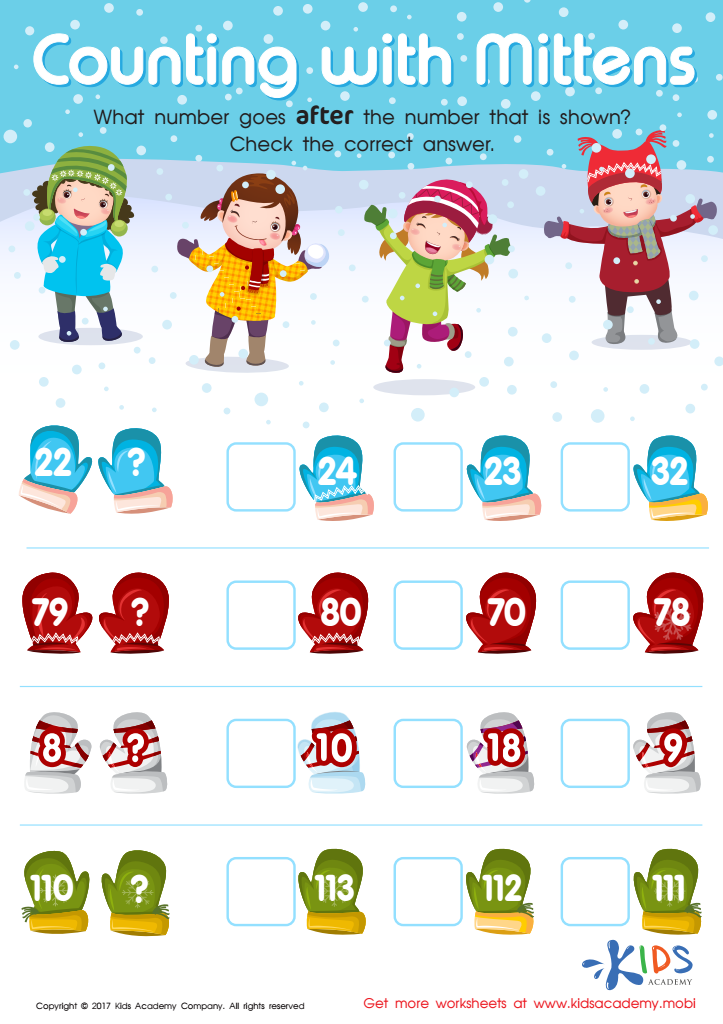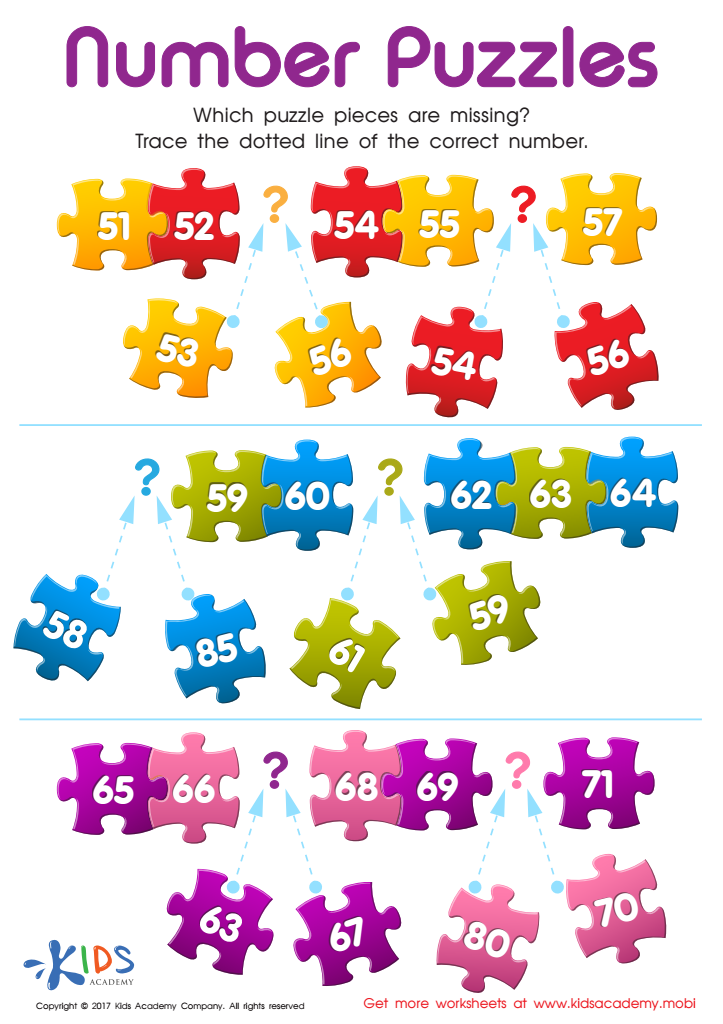Fine Motor Skills Numbers up to 100 Worksheets for Ages 7-9
4 filtered results
-
From - To
Boost your child's fine motor skills and numerical understanding with our "Fine Motor Skills Numbers up to 100 Worksheets" for ages 7-9! These engaging and educational worksheets help children practice forming numbers, tracing patterns, and sharpening their hand-eye coordination. Each activity blends fun with learning, offering a captivating way to reinforce numerical concepts while honing pencil control and precision. Perfect for developing essential skills, these worksheets support school readiness and math proficiency. Visit Kids Academy for a vast selection of tailored printable worksheets designed to make learning an enjoyable journey for your child!


Holiday Counting Worksheet


Counting with Mittens Worksheet


Number Puzzles Worksheet


Counting on the City Skyline: Dot-to-Dot Worksheet
Fine motor skills are essential for children aged 7-9, particularly when learning numbers up to 100. These skills involve the coordination of small muscles in actions like writing, buttoning, or using tools. For young learners, fine motor skills significantly impact their ability to grasp and manipulate objects, contributing to their overall academic and daily functional proficiency.
First and foremost, mastering fine motor skills is crucial for handwriting. As children learn to write numbers up to 100, precise movements and hand-eye coordination are pivotal. Enhanced fine motor skills facilitate better control and legibility, making the learning of numeric concepts smoother and less frustrating for the child.
Additionally, proficiency in managing objects like pencils and erasers advances children's confidence in completing math-related tasks. Activities such as placing numbers in sequences or working with manipulatives like beads and counting blocks become more accessible, promoting deeper understanding and retention of numeric order and arithmetic operations.
Furthermore, the development of fine motor skills translates to other crucial tasks beyond academics—they assist children in gaining independence in everyday activities. Thus, focusing on these skills ensures a well-rounded development, setting a solid foundation for ongoing educational pursuits and a competent, confident approach to daily challenges. Parents and teachers should thus prioritize fine motor development to enhance both learning and life skills.
 Assign to My Students
Assign to My Students


















